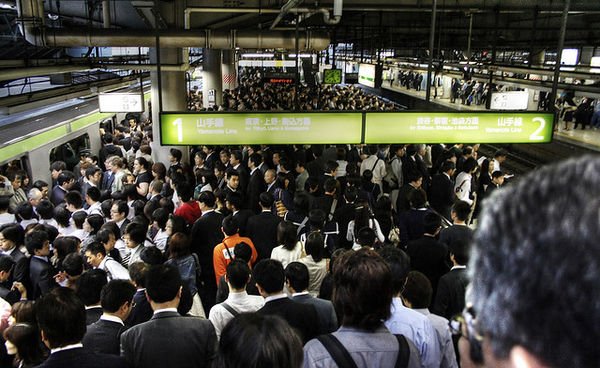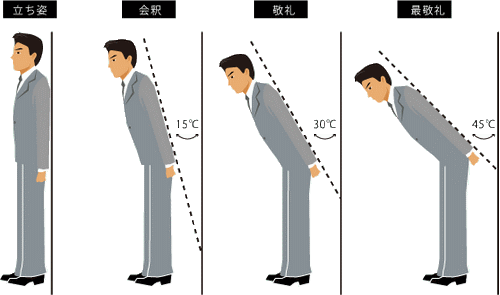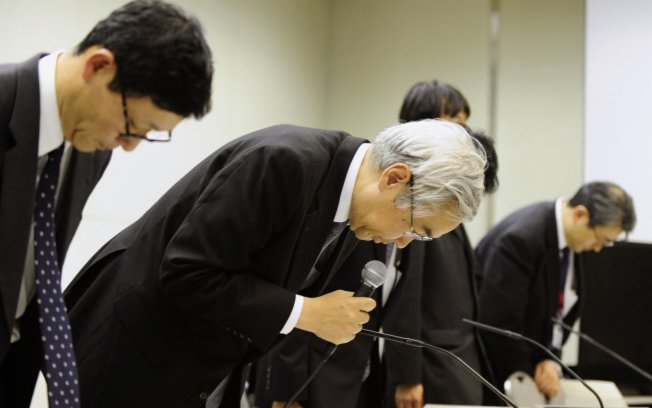The Japanese are so polite that they end up apologizing for just about anything. So much so that there are thousands of ways to apologize in the Japanese language. Today we are going to see 23 ways to apologize and say sorry.
There are different ways to apologize in Japan. It all depends on the severity of your mistake and your relationship with the person. A simple bump in Japan is reason to apologize. The Japanese apologize even without making any mistakes.
It is worth remembering that the translations at the foot of the lyrics can be quite strange like: I was Sad, I was Rude, Sorry, Forgive me things like that. however the effect of the word in Japanese is quite different from the translation into Portuguese.
Sumimasen and Shitsurei - Light apology
Sumimasen [すみません] is one of the most common words spoken in Japanese. It is often used as a light apology. If you bump into someone on the street or in the subway, you can apologize by saying sumimasen [deshita].
Shitsurei [失礼] can be translated as “excuse me”, but literally it's something rude, disrespectful and impolite, as if you're saying: I'm going to do something rude now I'm sorry. It's an informal and light apology. If you need to reach for something at the dinner table you can say shitsurei.

Shikkei [失敬] has the same meaning as shitsurei. It is mainly used by salaried workers. Young people do not often use. The first time you say that, you're with a group of employees.
Shitsureishimashita [失礼しました] is the formal version of shitsurei. In Japanese, the past tense often sounds more formal. It can be translated as "I was rude". You can say that if you spill a drink on a dinner table.
Sumimasen Deshita [すみませんでした] is the formal past tense of Sumimasen. Use this one to apologize to your boss when you're caught sleeping in the park during work hours.
Suimasen [すいません] and Sunmasen [すんません] are other colloquial forms of apology with the same meaning as sumimasen but more regional and informal.
disappear without [すみま千円] is a humorous and playful term for apologizing and forgiveness. A pun on using 1,000 yen [千円] at the end of the sumimasen sentence.
Using Gomen to Apologize in Japanese
Gomen [ごめん] is a very informal form of apology that should only be used with close friends and family. It is slang for Gomenasai (short form). You can say gomen when you are 5 minutes late when meeting up with a friend.
Gomen ne [ごめんね]The "NE" in Gomen is for emphasis, identical to the "NE" in Portuguese, but it sounds more feminine. Say ごめんね when you're 5 minutes late meeting your friends.
Gomenasai [ごめんなさい] means I'm sorry and sounds a little more formal, but don't use it with everyone. In other words, don't try to say Gomenasai with your boss or higher level people. Use it when someone is mad at you.
Sumanai [済まない] can indicate something inexplicable, unjustifiable, unforgivable, an apology and thanks, pity and remorse. Young people often use Suman [すまん] informally as if it were a “Sorry”.

Formal ways to say sorry in Japanese
Moushiwake Gozaimasen deshita [申し訳ございませんでした] is a formal apology. You should only use it if you've done something very wrong. It can be used by the president of a company that has released a defective product.
Moshiwake arimasen deshita [申し訳ありませんでした] is an even more polite form. Use it to apologize after your company releases a very dangerous defective product. Literally, it literally means: we are sorry.
Makoto ni moushiwake gozaimasen deshita [誠に申し訳ございませんでした] is mostly used by a disgraced samurai and a ninja. Use this option when falling in love with a shogun's daughter. A super formal way, keigo!

The article is still halfway through, but we recommend also reading:
Other Ways to Apologize in Japanese
Owabishimasu [お詫びします] literally means apology. It might sound like I apologize for that or I'm sorry for making that mistake.
Fukaku owabiitashimasu [深くお詫びいたします] is a more formal version of owabishimasu and means my heartfelt apologies.
Kokorokara owabi moshiagemasu [心からお詫び申し上げます] literally means "sincere apologies from the bottom of the heart". Used by a business manager who sincerely apologizes that it was all because of his incompetence.
Ainiku [生憎] conveys the idea of unfortunately or not possible, but it means forgiveness and apologies. It is usually written in hiragana and is often used in the middle of sentences in longer expressions.
Saasen [サーセン] is an unusual way of saying sorry or sorry.
Osoreiru [恐れ入る] is a verb that can mean to regret, beg apologies and forgiveness. Literally the word means to be afraid.
- Soorii [ソーリー] from English "Sorry";
- Ekusukyuiizumii [エクスキューズミー] from English excuse me;
I hope you enjoyed the article, if you liked it, leave your comments and share it with your friends. Do you know any other alternatives to apologize in Japanese?







